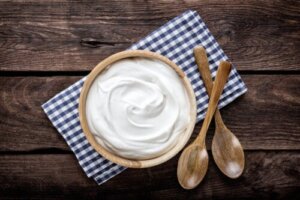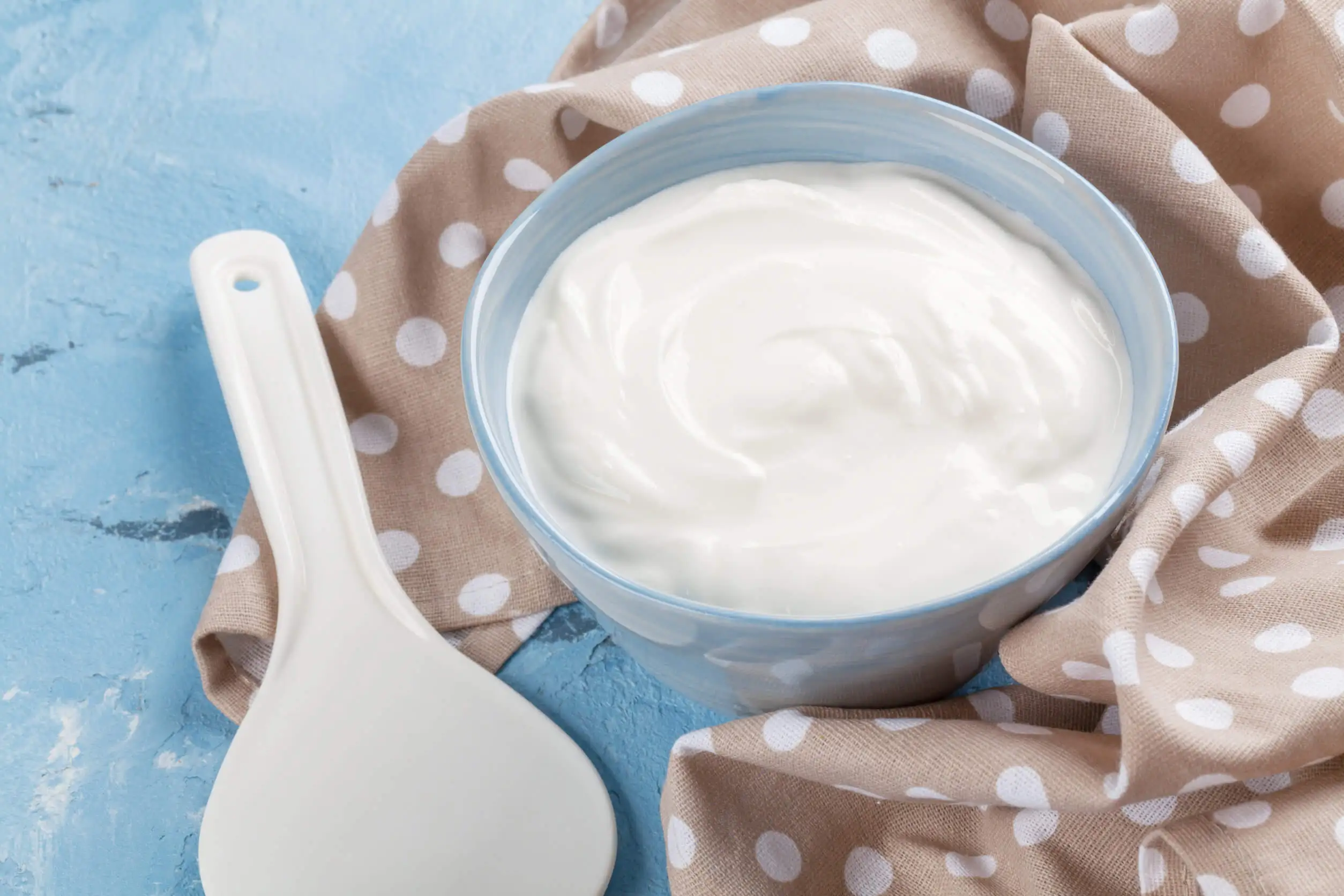Is Sour Cream Healthy? Learn About its Nutrients and Benefits


Written and verified by the nutritionist Saúl Sánchez Arias
Sour cream is a product made from fermented cow’s milk and which contains lactic acid bacteria. It’s frequently used to dress potatoes and may have certain nutritional properties.
However, like all sauces, it should be consumed in moderation. It can increase calorie levels of many dishes, which would result in weight gain.
Before starting, it’s important to point out that it’s always preferable to prioritize homemade sauces over industrial ones. The latter have elements such as artificial additives, which can damage the intestinal microbiota. They also usually contain simple sugars and even trans fats.
Nutritional value of sour cream
The first thing we’re going to talk about is the nutritional value of sour cream. It’s a recipe that provides about 60 calories per 2 tablespoons.
Fat is the main nutrient, with 5.8 grams per serving. Proteins and carbohydrates aren’t very representative in this case. From the point of view of micronutrients, we could talk about calcium and vitamin A. Both elements are necessary in order to maintain a good state of health.
It should also be mentioned that most of the lipids in this sauce are of the saturated type. For many years they were associated with a higher risk of developing chronic and complex pathologies, although this has now changed. Those to be avoided are only trans fatty acids, as evidenced by research published in the BMJ.
Find out more: Strawberry Cake with Sugar-Free Whipped Cream
Health benefits of sour cream
In moderate amounts and in the context of a varied and balanced diet, sour cream can provide several benefits. The following should be highlighted.

It improves the density and diversity of the microbiota
Sour cream undergoes a fermentation process, which ensures the presence of microorganisms within it. These bacteria can selectively colonize the digestive tract, thus improving the function of the microbiota.
This results in better digestion and absorption of nutrients. In addition, it reduces the incidence of inflammatory pathologies of intestinal type, according to a study published in Molecular Nutrition & Food Research.
It increases the absorption of vitamins
Some vitamins need fat to be absorbed, and these are the fat-soluble vitamins.
We can mention vitamins A and D, for example. In this sense, the lipids provided by sour cream can improve the availability of these nutrients, avoiding deficit situations in the medium term.
It helps protect bones
Dairy products are foods with a high calcium content. We’re talking about a vital mineral in bone health, as evidenced by research published in the journal Nutrients.
It’s important to ensure a daily intake to avoid fractures over the years. It’s also important to exercise regularly and to maintain vitamin D levels in optimal ranges to support this function.
You may also be interested in: Smoked Salmon Blinis with Tartar Sauce Recipe
Can sour cream be included in the diet?
As you have seen, sour cream has certain health properties. However, it should be consumed in moderation within the relevant guidelines. If you eat too many sauces, then it could cause an imbalance in calorie levels, resulting in weight gain.
It’s vital to avoid excess weight, as this can produce increases in chronic internal inflammation. From here, the risk of developing chronic and complex pathologies increases. However, sour cream is much more suitable than other recipes that have a high sugar and trans fat content.

Sour cream: a sauce for a healthy diet
Sour cream is a recipe that can be part of the diet in moderation. It’ll improve the taste and look of many dishes and can provide probiotics. However, this doesn’t preclude the inclusion of other fermented dairy products, such as yogurts and kefir.
Finally, it’s good to keep in mind that when the goal is to maintain a good state of health, it isn’t enough just to take care of the diet. You need to consider a series of habits as a whole, especially the need to carry out physical exercise on a regular basis.
All cited sources were thoroughly reviewed by our team to ensure their quality, reliability, currency, and validity. The bibliography of this article was considered reliable and of academic or scientific accuracy.
- de Souza, R. J., Mente, A., Maroleanu, A., Cozma, A. I., Ha, V., Kishibe, T., Uleryk, E., Budylowski, P., Schünemann, H., Beyene, J., & Anand, S. S. (2015). Intake of saturated and trans unsaturated fatty acids and risk of all cause mortality, cardiovascular disease, and type 2 diabetes: systematic review and meta-analysis of observational studies. BMJ (Clinical research ed.), 351, h3978. https://doi.org/10.1136/bmj.h3978
- Sánchez, B., Delgado, S., Blanco-Míguez, A., Lourenço, A., Gueimonde, M., & Margolles, A. (2017). Probiotics, gut microbiota, and their influence on host health and disease. Molecular nutrition & food research, 61(1), 10.1002/mnfr.201600240. https://doi.org/10.1002/mnfr.201600240
- Vannucci, L., Fossi, C., Quattrini, S., Guasti, L., Pampaloni, B., Gronchi, G., Giusti, F., Romagnoli, C., Cianferotti, L., Marcucci, G., & Brandi, M. L. (2018). Calcium Intake in Bone Health: A Focus on Calcium-Rich Mineral Waters. Nutrients, 10(12), 1930. https://doi.org/10.3390/nu10121930
This text is provided for informational purposes only and does not replace consultation with a professional. If in doubt, consult your specialist.








